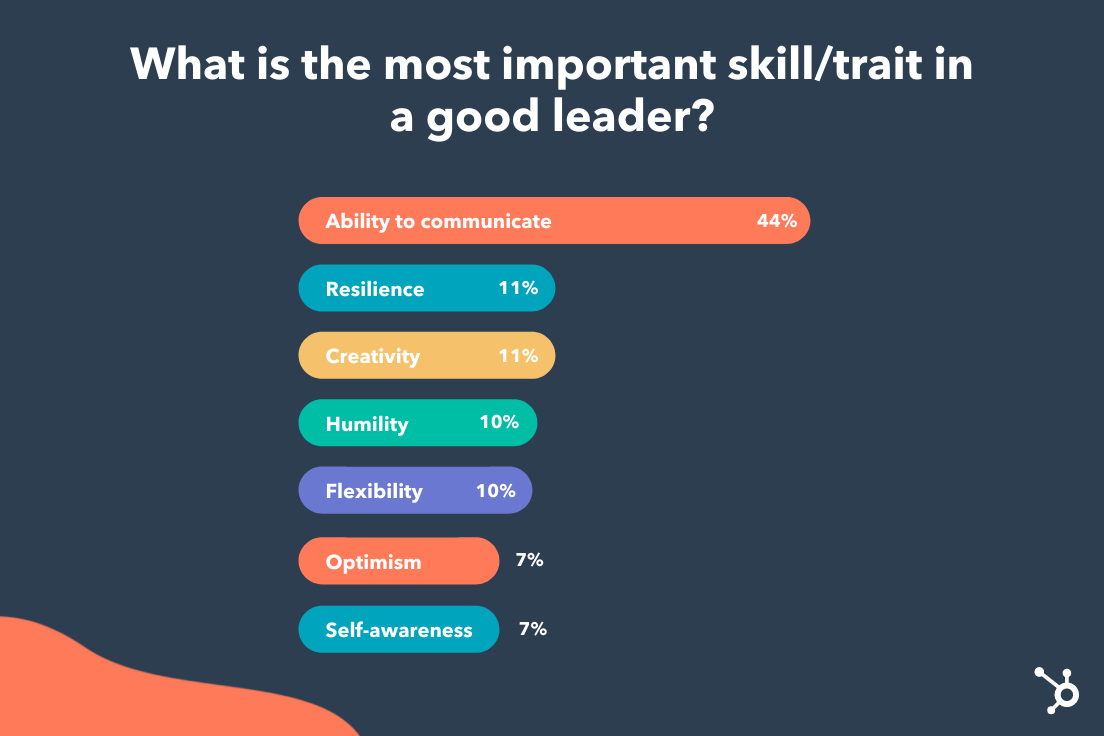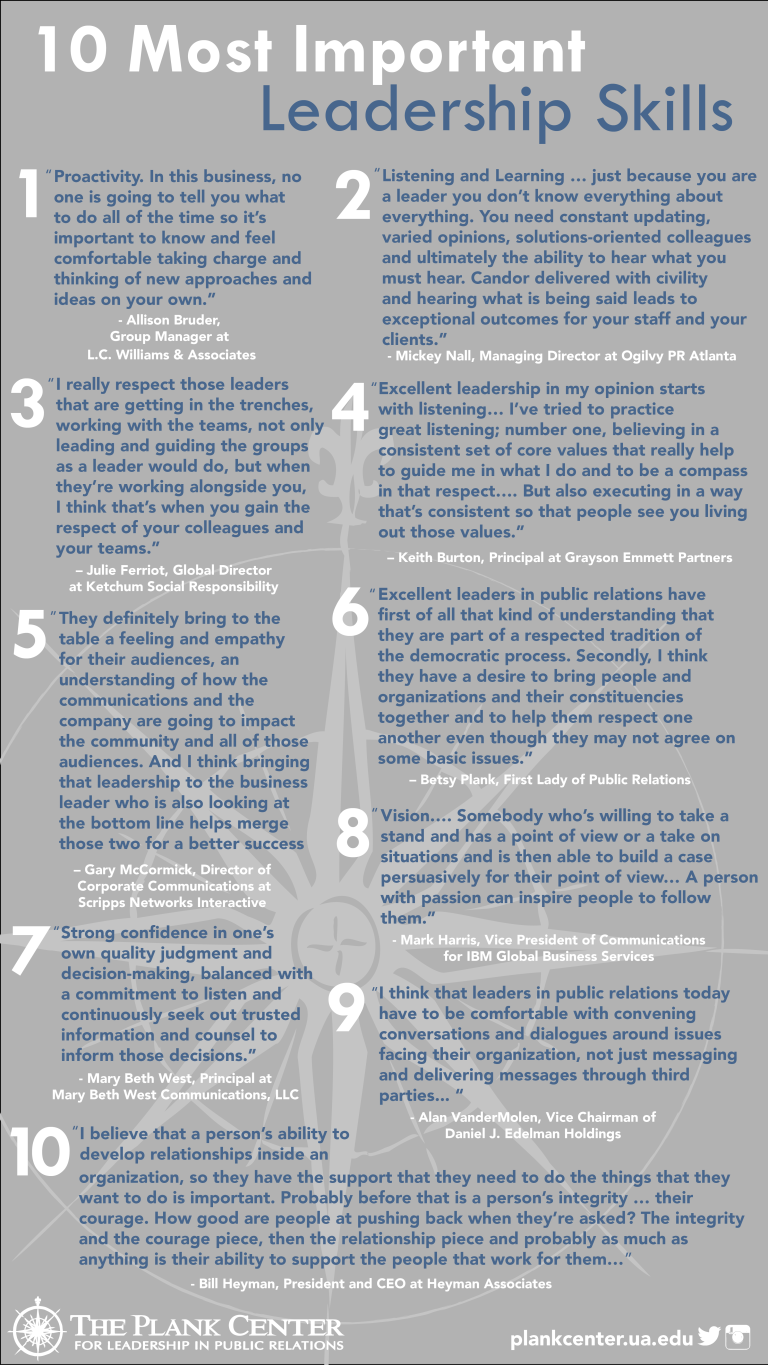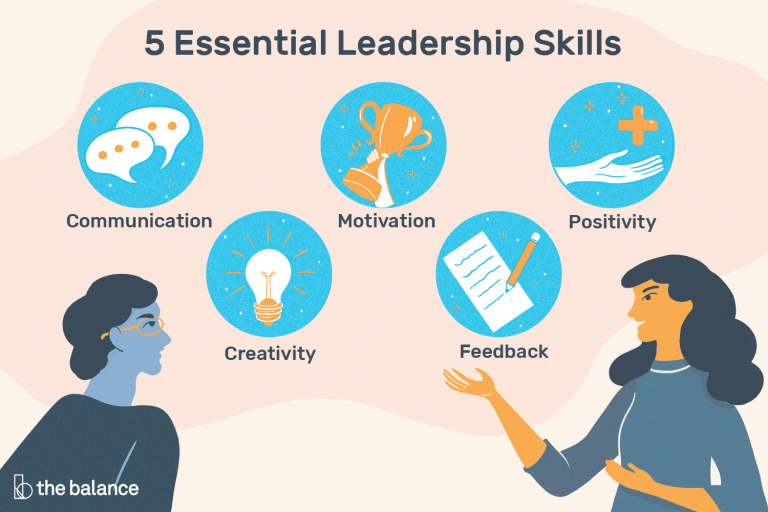What is the Ability of Being a Great Leader?
The ability of being a great leader lies in having strong communication skills and the ability to inspire and motivate others. Leadership is a crucial skill in any organization or group as it sets the tone and direction for success.
A great leader possesses the unique ability to communicate effectively, articulating their vision and goals clearly and concisely. They have the power to inspire and motivate their team, fostering a positive and productive work environment. Moreover, great leaders are able to make sound decisions and take responsibility for their actions.
By being empathetic and approachable, they build trust and rapport with their team members, creating a sense of unity and collaboration. Ultimately, the ability of being a great leader is multifaceted, encompassing effective communication, inspiration, motivation, decision-making, and empathy.
The Importance Of Leadership
Leadership plays a crucial role in the success of any organization, whether it’s a business, a sports team, or a community group. A great leader possesses the ability to guide, inspire, and influence others towards achieving common goals. Their skills and qualities have a significant impact, not only on the overall performance of the team but also on the dynamics within the group. In this section, we will explore the role of leadership in achieving success and how it impacts team dynamics.
The Role Of Leadership In Achieving Success
Leadership is the driving force that propels individuals and teams forward on their path to success. Effective leaders provide a clear vision and set goals that align with the organization’s objectives. They are able to communicate their expectations, motivate their team members, and inspire them to perform at their best. A successful leader possesses strong decision-making abilities, problem-solving skills, and the ability to adapt to change. They take responsibility for their actions and are accountable for their team’s performance. With their guidance, a well-led team can overcome obstacles, seize opportunities, and achieve outstanding results.
How Leadership Impacts Team Dynamics
Leadership has a profound impact on the dynamics within a team. A great leader fosters a positive and cohesive working environment where each team member feels valued and supported. They facilitate effective communication, encouraging open dialogue and active listening. By promoting collaboration and teamwork, leaders create a sense of unity among team members, helping them to work together towards a common objective. Additionally, leaders provide guidance and mentorship, empowering individuals to develop their skills, and ensuring their growth within the team. Through their leadership, they establish trust, respect, and loyalty, fostering an atmosphere that enhances productivity and creativity.
Qualities Of A Great Leader
A great leader possesses a unique set of qualities that sets them apart from others. These qualities enable them to inspire and guide their team towards success. In this section, we will explore three essential qualities that make a leader truly exceptional.
Strong Communication Skills
Effective communication is the foundation of great leadership. Leaders who can convey their thoughts clearly and articulately are more likely to gain the trust and respect of their team members. They actively listen to others, giving full attention to what is being said, and respond thoughtfully. Whether it’s delivering a persuasive presentation, giving constructive feedback, or simply engaging in everyday conversations, a great leader knows how to communicate to achieve positive outcomes.
Emotional Intelligence
Emotional intelligence, or the ability to understand and manage emotions, is another crucial quality of a great leader. Leaders with high emotional intelligence are more self-aware, empathetic, and skilled at handling interpersonal relationships. They can recognize and regulate their own emotions and are aware of how their actions may impact others. By understanding the emotions of their team members, great leaders can create a harmonious and supportive work environment, fostering stronger connections and ultimately bolstering productivity.
Confidence And Decisiveness
A great leader exudes confidence and decisiveness in their actions and decisions. They trust their abilities and have faith in their team. This self-assuredness inspires trust and motivates others to follow their lead. A confident leader is not afraid to make tough decisions, even in uncertain situations. They weigh the options, gather the necessary information, and then take bold action. By demonstrating decisiveness, leaders create clarity and direction, empowering their team to move forward with confidence.
Building Leadership Skills
Developing strong leadership skills is a crucial asset to becoming a great leader. Effective leaders continuously work on improving their abilities through various means. In this section, we will explore two essential aspects of building leadership skills: continuous learning and self-improvement, and seeking feedback and applying it. Additionally, we will discuss the importance of leading by example, ensuring that your actions align with your words and expectations.
Continuous Learning And Self-improvement
Leadership is not a destination but a lifelong journey. Engaging in continuous learning and self-improvement is key to refining leadership skills. By staying curious and open-minded, leaders can adapt to new challenges and enhance their decision-making abilities.
Some ways to foster continuous learning include:
- Reading books and articles on leadership, management, and personal development.
- Attending workshops, seminars, and conferences to gain insights from industry experts.
- Enrolling in online courses or certifications to acquire new knowledge and expand competencies.
Remember, leadership skills are not developed overnight. It requires consistent effort and dedication to self-improvement.
Seeking Feedback And Applying It
Constructive feedback is a valuable tool for self-growth. Great leaders actively seek feedback from their team members, peers, and superiors to gain different perspectives and identify areas for improvement. Instead of being defensive, leaders should embrace feedback as an opportunity to grow and develop.
Here are some tips for seeking and applying feedback effectively:
- Creating a culture of open communication and trust, encouraging honest and constructive feedback.
- Actively listening to feedback without interrupting or getting defensive.
- Reflecting on the feedback received and identifying areas where adjustments can be made.
- Taking actions to address the feedback and communicate progress with the relevant parties.
By seeking feedback and applying it in a meaningful way, leaders can continuously enhance their skills and lead their team more effectively.
Leading By Example, Ensuring Each Heading Adheres To Html Syntax
Actions speak louder than words, especially in leadership. Leading by example is a powerful way to inspire and motivate others to follow suit. When leaders consistently demonstrate the behaviors they expect from their team members, it fosters a positive and accountable work culture.
Here are some strategies for leading by example:
- Setting high standards and holding oneself accountable to them.
- Being transparent and honest in communication.
- Displaying empathy and listening actively to others.
- Showing dedication and commitment to the team’s goals.
Leading by example creates a ripple effect within the team, encouraging them to emulate the desired behaviors.

Credit: blog.hubspot.com
Challenges Faced By Leaders
Being a leader comes with its fair share of challenges. To be a great leader, one needs to possess a unique set of skills and abilities that enable them to overcome these challenges. Among the various hurdles faced by leaders, managing conflicts and disagreements, as well as dealing with pressure and stress, are two of the most demanding tasks.
Managing Conflicts And Disagreements
In any organization, conflicts and disagreements are bound to arise. As a leader, it becomes your responsibility to effectively manage these situations. This involves creating an environment where open communication is encouraged, allowing team members to express their concerns without fear or hesitation.
By fostering a culture of respect and collaboration, you can guide your team towards resolving conflicts in a healthy and productive manner. This may involve mediating discussions, encouraging compromise, or facilitating team-building activities to improve relationships among team members.
In addition, it is essential for leaders to be skilled in active listening and empathizing with different perspectives. This enables them to understand the underlying causes of conflicts and find suitable solutions that address the root issues.
Dealing With Pressure And Stress
Leadership positions often come with a significant amount of pressure and stress. As a leader, you not only have the responsibility of driving your team towards success but also the burden of making important decisions that may impact the entire organization.
To effectively deal with pressure and stress, it is crucial for leaders to develop strong emotional intelligence. This includes being self-aware of their own emotions and stress triggers, as well as being able to regulate their reactions in high-pressure situations.
Leaders should also prioritize self-care to maintain their mental and physical well-being. This can be achieved through various means such as setting boundaries, practicing stress-relieving techniques, and seeking support from mentors or coaches.
Additionally, leaders need to cultivate a resilient mindset that allows them to bounce back from setbacks and challenges. By maintaining a positive outlook and learning from failures, leaders can inspire their teams to stay motivated and persevere through difficult times.
Developing A Leadership Mindset
Developing a Leadership Mindset is essential in order to possess the ability to be a great leader. It involves cultivating qualities like confidence, empathy, and effective communication, enabling one to inspire and motivate a team towards success.
Adopting A Growth Mindset
Having a growth mindset is essential for anyone aspiring to be a great leader. A growth mindset is the belief that abilities and intelligence can be developed through continuous learning and effort. When leaders adopt a growth mindset, they embrace challenges, view failure as an opportunity to learn, seek feedback to improve, and are inspired by the success of others. They understand that their skills and abilities are not fixed, but can be nurtured and enhanced over time.
Building Resilience
Resilience is a key trait of effective leaders. It is the ability to bounce back from setbacks, adapt to change, and keep pushing forward despite obstacles. Building resilience requires developing mental strength, emotional intelligence, and effective coping mechanisms. Great leaders understand that challenges and setbacks are inevitable, but their resilience helps them stay focused and motivated. They view failure as a stepping stone to success and use it as a learning opportunity to grow and improve.
There are several effective strategies for building resilience:
- Developing a support network: Surrounding yourself with positive and encouraging people who can provide support and guidance during difficult times.
- Practicing self-care: Taking care of your physical and mental well-being by getting enough rest, eating nutritious food, exercising regularly, and participating in activities that bring joy and relaxation.
- Adapting to change: Embracing change as an opportunity for growth and being flexible in your approach.
- Staying optimistic: Cultivating a positive mindset and focusing on solutions rather than dwelling on problems.
By actively implementing these strategies, leaders can strengthen their resilience, cope better with challenges, and inspire others to do the same.
Frequently Asked Questions Of What Is The Ability Of Being A Great Leader?
How Can I Improve My Leadership Skills?
To improve your leadership skills, focus on developing strong communication, listening, and decision-making abilities. Seek feedback and invest in continuous learning and growth.
What Are The Qualities Of A Great Leader?
A great leader possesses qualities such as empathy, resilience, integrity, and the ability to inspire and motivate others. They also exhibit strong problem-solving and decision-making skills.
How Does Being A Great Leader Impact Teams?
Being a great leader positively impacts teams by fostering a collaborative and empowering environment. It boosts team morale, increases productivity, and promotes the growth and development of individuals within the team.
Conclusion
The ability to be a great leader lies within the individual’s capacity to inspire, motivate, and guide others towards a shared goal. Effective leadership involves effective communication, problem-solving skills, and the ability to adapt to changing circumstances. Leaders possess a strong vision and are capable of making tough decisions.
By demonstrating empathy, integrity, and a willingness to listen, great leaders can foster a productive and positive work environment. Ultimately, being a great leader requires continuous learning and growth, as leadership is an ongoing journey of self-improvement.





